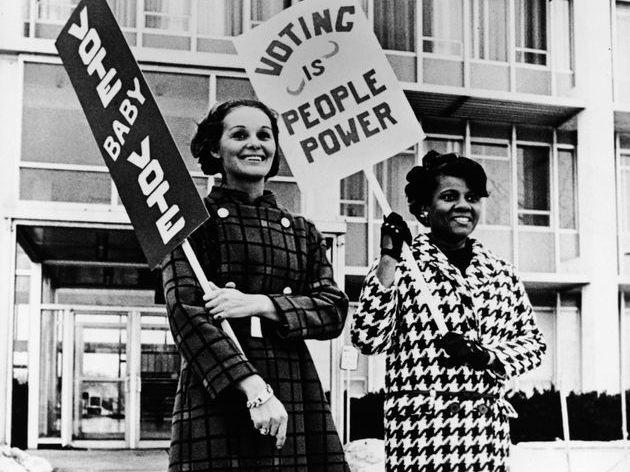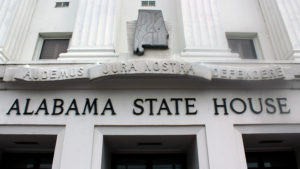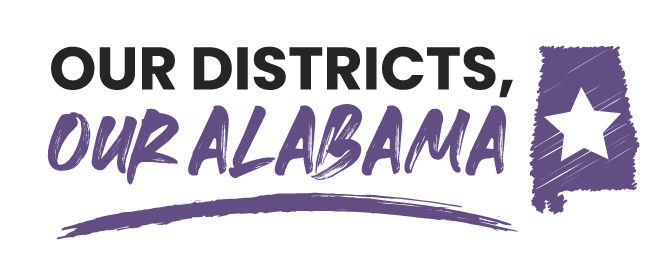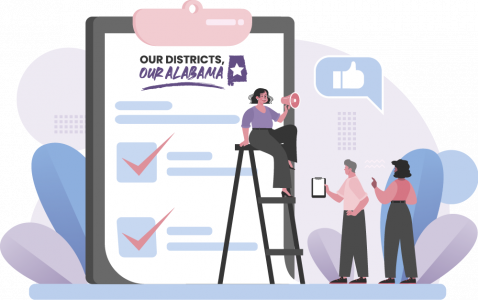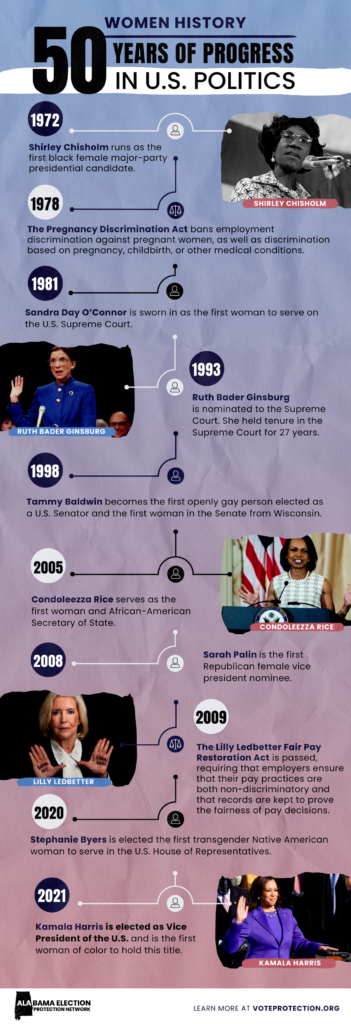
1971: National Women’s Political Caucus is formed
Today, the National Women’s Political Caucus is the only organization in the United States dedicated exclusively to growing women’s engagement in all areas of politics and public life, including lobbyists, voters, campaign organizers, judges, and delegates.
1972: Shirley Chisholm is the first black female major-party presidential candidate
The first African-American woman elected to congress stated, “I ran because somebody had to do it first.” Several years later, Chisholm helped to create the Congressional Women’s Caucus and championed the interests of her district, including minimum wage for domestic working and daycare funding
1978: The Pregnancy Discrimination Act bans employment discrimination against pregnant women
This act amended the Civil Rights Act of 1964, prohibiting discrimination based on pregnancy, childbirth, or other medical conditions, making it so employers could not refuse to hire a qualified candidate based upon pregnancy status.
1981: Sandra Day O’Connor is sworn in as the first woman to serve on the U.S. Supreme Court
While holding office, O’Connor was known for upholding states’ rights and was often a swing vote. Her most famous vote cast was in the decision between Bush v. Gore, which made George W. Bush the 43rd President of the United States.
1984: Geraldine Ferraro becomes the first woman to be nominated for vice president on a major ticket
Running alongside Walter Mondale against Ronald Reagan, Ferarro became the first woman to make it on the ballot in a major political race. Born to Italian immigrant parents, Ferraro pursued a liberal, feminist agenda, breaking barriers in a conservative and male-dominated district.
1989: Ileana Ros-Lehtinen is the first Hispanic woman and Cuban-American elected into Congress
Born in Cuba, Ros-Lehtinen was the most senior member in Florida for the U.S. House of Representatives and the most senior female Republican in the House until 2019. During this time, she also became the first Republican in the House to announce support for same-sex marriage.
1993: Ruth Bader Ginsburg is nominated to the Supreme Court
Nominated by former President Bill Clinton in 1993, Ruth Bader Ginsburg held tenure in the Supreme Court for 27 years. Ginsburg is a woman of many firsts, including being the first tenured female Columbia Law School professor and co-author of the first casebook regarding sex discrimination.
1998: Tammy Baldwin is the first openly gay woman elected into Congress
Not only is Tammy Baldwin the first openly gay person elected as a U.S. Senator, but she’s also the first woman in the Senate from Wisconsin. While in office, she has advocated for healthcare reform and sponsored action related to women’s rights.
2001: Elaine Chao becomes the first Asian-American woman to serve in a presidential cabinet
Appointed by former President George W. Bush, Chao focused on improving overtime regulations for workers and securing unions and workers’ regulations during her eight-year tenure. Between 2017 to 2021, Chao also served as Secretary of Transportation in the Trump administrations.
2005: Condoleezza Rice serves as the first woman and African-American Secretary of State
As Secretary of State, Rice focused on transformational diplomacy to build and maintain democratic states in the Middle East and around the world. A woman of many firsts, Rice also served as the first African American woman and woman as provost of Stanford University and national security advisor.
2006: Christina Quinn is the first openly gay city council speaker
Holding the position of Speaker of the New York City Council, Quinn was both the first woman and openly gay politician to hold this role. In 2013, she ran for mayor of New York and later became President and CEO of WIN, a nonprofit organization providing shelter to New Yorkers in need.
2008: Sarah Palin is the first Republican female vice president nominee
Before becoming a nominee for vice president, Palin became Alaska’s youngest and first female governor. After resigning from her post as Governor of Alaska, Palin utilized her background in Journalism and became a news contributor focusing on the Tea Party Movement.
2009: The Lilly Ledbetter Fair Pay Restoration Act is passed
The act requires that employers ensure that their pay practices are both non-discriminatory and that records are kept to prove the fairness of pay decisions. Under this act, workers can file charges of pay discrimination under Title VII of the Civil Rights Act, Age Discrimination Employment Act, and the Americans with Disabilities Act without regard to the standard 180/300 day statutory charge filing period.
2009: Michelle Obama becomes the African-American First Lady
First Lady and lawyer Michelle Obama graduated from both prestigious Princeton University and Harvard Law School and worked in nonprofits and other distinguished roles. As First Lady, she made her position more relatable by utilizing social media to promote girls’ education, arts, healthy eating, and college initiatives.
2013: The ban against women in military combat positions is removed
Former Secretary of Defense Leon Panetta removed the ban on women serving in military combat roles. The ban opened all occupations and positions to women without any exceptions.
2014: Diane J. Humetewa appointed U.S. District Judge
As a member of the Hopi tribe, Humetewa became the first Native American woman to become a U.S. District Judge. Before this role, she held many other distinctions including, U.S. Attorney for Arizona, a professor at Arizona State University College of Law, and judge in the Hopi appellate court.
2016: Hilary Clinton is the first woman nominated by a major party for President of the United States
Before her run for President of the United States in 2016, the former first lady served as an advisor to her husband and 42nd President of the United States, focusing on children’s issues and health care. In 2000, she was elected into the U.S. Senate, becoming the first First Lady to win an elected office.
2017: Andrea Jenkins is the first Black transgender elected official
Before holding office, Jenkins worked in many roles, including a Vocational Counselor for Hennepin County government for ten years, a staff member for the Minneapolis City Council, and curator of the Transgender Oral History Project at the University of Minnesota’s Jean-Nickolaus Tretter Collection in Gay, Lesbian, Bisexual, and Transgender Studies.
2018: Ilhan Omar and Rashida Tlaib become the first Muslim women elected to Congress
Omar is one of two Muslim women elected into Congress. She is the first Somali American, the first naturalized citizen of African birth, and the first woman of color to represent Minnesota in the U.S. Congress. During her time in politics, she has advocated for affordable housing, universal healthcare, living wages, and Deferred Action for Childhood Arrivals protection.
Tlaib is the first Palestinian-American woman to be elected to represent Michigan in the U.S. Congress. Before holding this position, she worked as an attorney with several nonprofit legal advocacy groups and as a staffer for former state representative Steve Tobocman.
2020: Stephanie Byers is elected the first transgender Native American woman to serve in the United States House of Representatives
A member of the Chickasaw Nation, Byers retired from her career as a high school music and band teacher and ran for a seat in the Kansas House of Representatives. Her win made her the first transgender Native American woman to hold this role in Kansas and the first in the entire Midwest.
2021: Kamala Harris becomes the first woman Vice President of the United States
This year Harris became the highest-ranking female official in U.S. history and the first African American and Asian American vice president. Before this achievement, Harris served as a U.S. Senator and Attorney General for the state of California.

